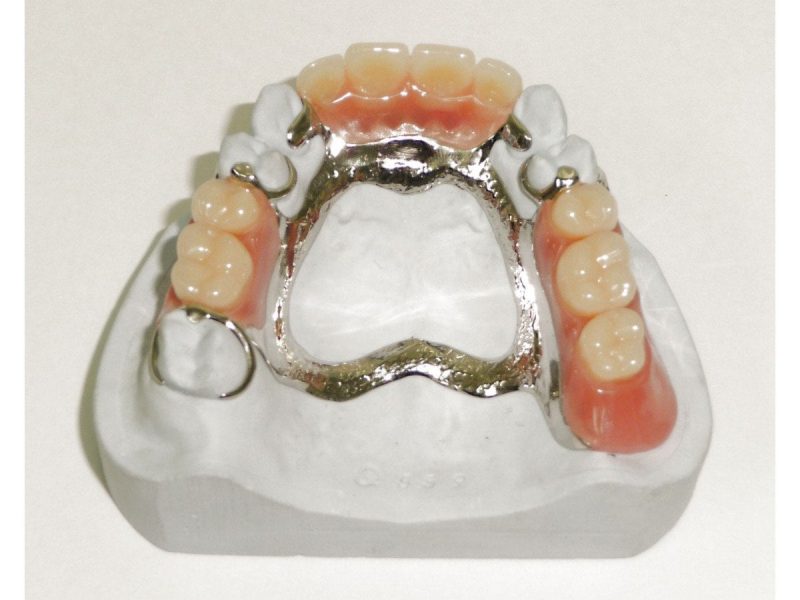Partial Dentures
Partial dentures are removable dental appliances designed to replace one or more missing teeth. Unlike full dentures, which replace all the teeth in the upper or lower jaw, partial dentures are customized to fill the gaps in a patient’s smile while preserving the remaining natural teeth.
Partial dentures can help prevent the shifting of remaining natural teeth and maintain the integrity of the jawbone.
Partial dentures can consist of a framework made of metal with acrylic sections holding the teeth on, or an acrylic base which supports the artificial teeth. Some partial dentures are also made from a durable flexible material. At your consultation appointment your particular needs will be assessed and all options discussed at length to ensure the the most appropriate choice of denture material will be used.

Partial dentures are anchored in place by clasps that grip onto adjacent natural teeth. These clasps provide stability and prevent the partial denture from moving during speaking or eating.The artificial teeth on partial dentures are carefully crafted to match the color, size, and shape of the patient’s natural teeth, ensuring a seamless and natural appearance.
Partial dentures restore the ability to chew and speak properly, improving overall oral function. They also help distribute the forces of biting and chewing more evenly across the remaining natural teeth.
Regular dental check-ups are essential to ensure that the partial denture continues to fit properly. Adjustments may be needed over time due to changes in the oral structure or natural teeth.
Just like full dentures, partial dentures require regular cleaning to maintain oral hygiene. Using a soft brush and a denture cleaner is recommended. It is important to remember to take your partial dentures out when cleaning the denture and you own natural teeth.
It is recommended to remove your partial dentures at night to allow the gums and supporting tissues to rest.
Partial dentures provide a cost-effective and non-invasive solution for individuals with a few missing teeth, offering both functional and aesthetic benefits. Consulting with your Dental Prosthetist is crucial for a thorough assessment and to determine the most suitable treatment plan based on individual needs.
